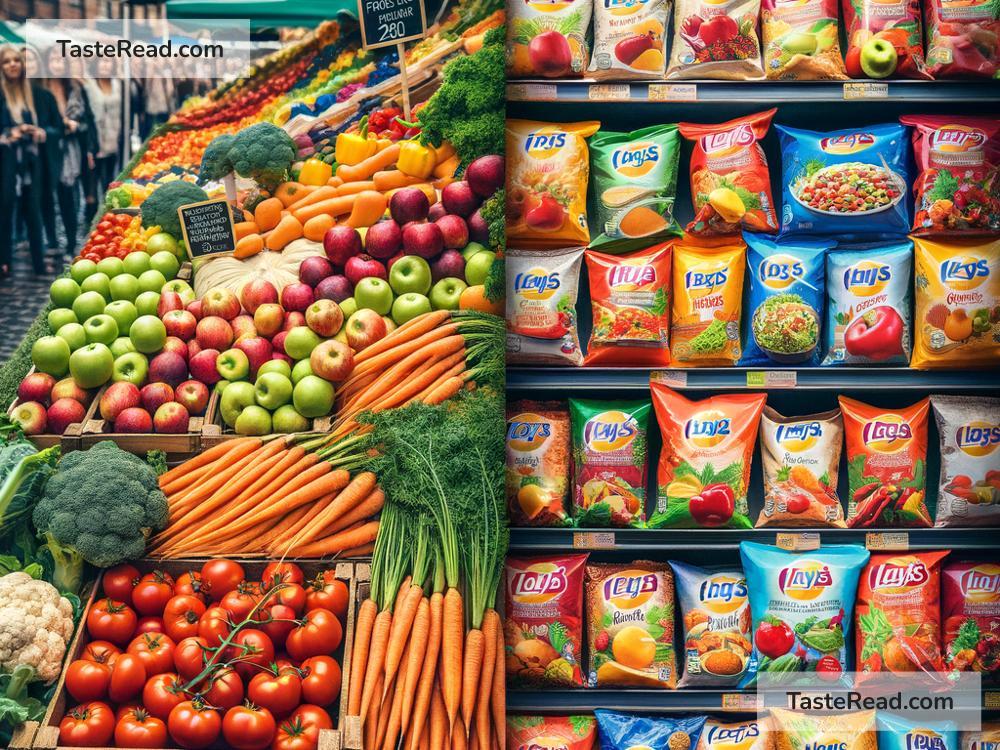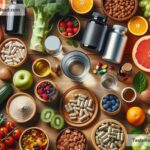The Impact of Environmental Toxins on Nutrition
We are surrounded by the environment every day, and it plays a big role in our health and well-being. However, not all parts of the environment are friendly to us. Harmful substances, called environmental toxins, can affect our bodies and even the food we eat. These toxins can change how we absorb nutrients, potentially leading to health problems. In today’s blog, we’ll explore the connection between environmental toxins and nutrition, why it matters, and what steps we can take to protect ourselves.
What Are Environmental Toxins?
Environmental toxins are harmful chemicals or substances that come from human activities or naturally occurring processes. They can show up in the air, water, soil, and even inside the foods we consume. Some examples of these toxins are pesticides, heavy metals like lead and mercury, industrial chemicals, and pollutants from factories or vehicles.
While small amounts of some of these substances may not harm us, repeated exposure over time can negatively impact our health. These toxins can enter our bodies through the foods we eat, the water we drink, or even the air we breathe.
How Do Environmental Toxins Affect Nutrition?
Nutrition is essential for keeping our bodies strong and healthy. It involves eating foods that provide vitamins, minerals, and other nutrients that our body needs to function properly. However, environmental toxins can interfere with nutrition in several ways:
1. Contaminating Our Food Supply
Toxins like pesticides and heavy metals can make their way into the fruits, vegetables, meat, fish, and grains we eat. For example, fish caught in polluted waters may contain mercury, which is harmful to humans. Similarly, crops sprayed with pesticides may carry chemical residues that can enter our bodies when we eat them.
When food is contaminated with toxins, it can reduce its nutritional value and introduce harmful substances into the body. For instance, some toxins break down vitamins and minerals, making it harder for us to benefit from the nutrients in our meals.
2. Blocking Nutrient Absorption
Certain toxins can disrupt how our bodies absorb nutrients from food. When we eat, our digestive system breaks food down and extracts important vitamins and minerals. However, toxins like heavy metals can block this process.
For example, lead interferes with the body’s ability to absorb calcium, an essential mineral for bone health. If we’re exposed to high levels of lead, our bones might become weaker over time. Similarly, other toxins may interfere with iron absorption, putting us at risk of anemia (low blood iron).
3. Causing Chronic Illnesses
Long-term exposure to environmental toxins can lead to chronic illnesses like inflammation, insulin resistance, and autoimmune disorders. These health issues can affect how the body uses nutrients. For example, inflammation can make it harder for the body to process certain vitamins and minerals, leading to deficiencies even if we’re eating a healthy diet.
Certain toxins, such as endocrine disruptors, can also harm the body’s hormone systems, which play a key role in metabolism and nutrient distribution.
4. Impacting Gut Health
The gut, which includes the stomach and intestines, is central to how the body processes food and absorbs nutrients. Environmental toxins, like antibiotics and industrial chemicals, can harm gut bacteria, which are essential for digestion.
A healthy gut has a balance of “good” bacteria that help break down food and keep the immune system strong. Toxins can kill off these good bacteria or upset their balance, making it harder for the body to absorb nutrients properly.
Why Is This Important?
Nutrition is the foundation of good health. Without enough nutrients, our bodies can’t repair themselves, make energy, or fight off diseases. When environmental toxins interfere with nutrition, the effects can be widespread—from weaker immune systems to chronic conditions like heart disease and diabetes.
Many of these problems don’t happen overnight. Instead, they can build up over time as toxins accumulate in the body. This means staying aware of the impact of toxins on nutrition is important for long-term health.
How Can We Protect Ourselves?
Luckily, there are steps we can take to minimize our exposure to environmental toxins and protect our nutrition:
1. Choose Organic Foods
Organic fruits and vegetables are grown without synthetic pesticides, making them less likely to contain harmful chemical residues. Similarly, organic meat and dairy products often come from animals that haven’t been exposed to antibiotics or chemical-treated feed.
2. Wash Your Produce
Even if you can’t always buy organic, washing fruits and vegetables under running water can help remove pesticide residue and dirt.
3. Filter Drinking Water
Use water filters to remove contaminants like lead or industrial pollutants from tap water. Clean, filtered water is essential for maintaining good health.
4. Limit Processed Foods
Processed and packaged foods often contain additives and chemicals that may harm your health. Focus on whole foods like fresh fruits, vegetables, and grains that are less likely to carry toxins.
5. Avoid Pollution Hotspots
Stay away from heavily polluted areas when possible. For example, avoid eating fish from waters that are known to be contaminated with mercury.
6. Support Sustainable Practices
By supporting farming and production methods that prioritize environmental health, you can reduce the spread of toxins in the food supply and help create a healthier world.
Final Thoughts
While environmental toxins are a serious issue, we have the power to make choices that protect our bodies and the nutrients we need to thrive. By being aware of the risks and making small lifestyle changes, we can reduce our exposure to harmful substances and promote better health.
Remember, healthy eating isn’t just about the foods you choose—it’s also about avoiding the contaminants that might be hiding in them. Stay informed, eat mindfully, and protect your nutrition for a healthier future!


